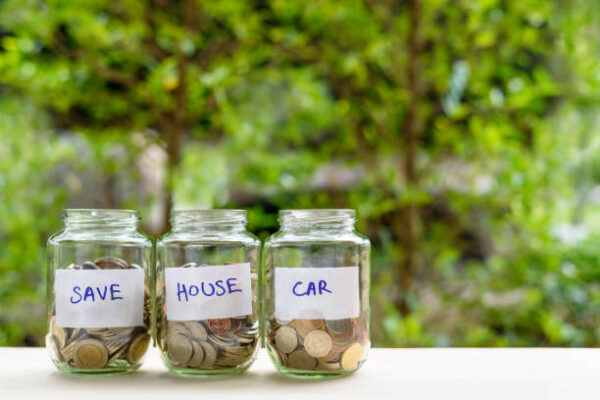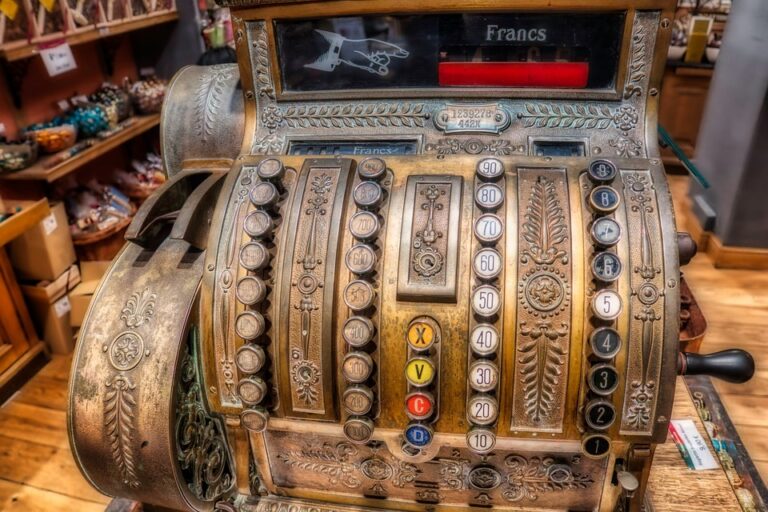Last updated Jan. 7, 2024 by Jessica Green
Cars, whether new or secondhand, are expensive. Yet your coworkers, friends, and neighbors can afford to own it while you struggle to have enough savings after paying off taxes. Why is this? And how do people afford new cars?
In truth, most people cannot afford to own a car based on their income. So, the problem doesn’t lie with you. To own a car, most people take out loans, engage in car leasing, or save a long time for it.
Only a few people can pay for a new car in cash – this set of people are often the upper class with investments that enable them to finance a car. If your goal is to afford a car this year, this article puts you through all that you need to do and know.
How Do People Afford New Cars
People can afford to get a new car by taking a car loan, having a good income, saving for a downpayment, getting a job that includes a car as a benefit, and a lot more. If you aim to get a new car, here are a few things you can do:

Take A Car Loan
Eighty-five percent of people finance their new car by taking auto loans. It is one of the most common and easiest ways to afford a car.
If you’re in the middle or lower class, and cannot afford a full payment for a car, consider a car loan. Banks, car dealerships, and credit unions offer this type of loan. However, to access this loan, you must have a good credit report. A credit report determines the maximum amount you can borrow and your approval chances.
Most car loans often last for 69 months. Although this allows you to make small monthly payments, it comes with tons of downsides, one of which is a higher interest payment.
Here’s a piece of advice, never take a car loan that extends the length of warranty coverage.
Take A Car Lease
If your coworker or neighbor changes to a new car every two to three years, there’s a high chance they’re leasing the car.
Leasing allows you to use a vehicle for a limited period. Once the lease contract ends, you’ll be required to return the car in good condition or purchase it for the residual value.
Most people prefer car leasing to car loans due to the smaller monthly payments it requires. So if you’re a low-income earner, consider taking a car lease.
Car leases are available through car dealers. Meet a dealer, decide on the type of car/lease you want, get quotes from the dealer and negotiate, understand the lease terms, provide the necessary documents, and close the deal.
Note, that every car lease comes with a mileage limit. Decide on the mileage limit that works for you before signing an agreement with the car dealer.
Manufacturer or Dealer’s Incentive Program
Most car dealers offer incentives and other sorts of promotions to encourage and boost sales. You can take advantage of these programs when planning to get a car.
Car dealer incentive program comes in different forms. The low- or no-interest financing allows you to purchase a car on credits with no interest attached. Some dealers offer interest rates as low as 5%. The special lease incentive program enables you to make low down payments and monthly payments. With the cash incentive, you will get to receive cash back once you purchase a car in cash.
Tip: You can’t combine the different types of car incentives. Hence, it is important to speak with a dealer to understand the incentive that lets you save more money.
Trade Current Car As Down Payment

If you own an old working car, you can afford to get a new one by trading the old one as a downpayment. Here’s how it works:
First, talk with several car dealers to determine the market value of your old vehicle. Next, conduct your research on car dealers that accept old vehicles as a downpayment for new ones. Once you strike a good deal, prepare the necessary documents and put your old car in good condition.
Inspection will be done on the old car. Once the market value is determined, it’ll be deducted from the amount for the new car. Afterward, you can proceed to make monthly payments for the new car.
If you haven’t paid off the auto loan on your old car, inform your dealer during the negotiation stage. The loan will be paid off by the dealer as soon as the car is traded in.
Salary Sacrifice Scheme
The salary sacrifice car scheme is a program offered by most companies. It involves taking out a portion of your pre-tax salary in exchange for a new car.
Thus, if you cannot save for a new car, you can opt for this. Most companies partner with car dealers in order to provide this service to their employees. Meet up with your supervisor or manager to get detailed information on eligibility status and application process.
Most employers/companies bargain discounts for their employees. They also enable you to gain access to a new car without down payment or credit checks.
Get A Cosigner
If you have a low credit score and can’t afford to apply for an auto loan, consider getting a cosigner.
A cosigner can be a friend, parent, sibling, or someone reliable with a good credit score. This person must be willing to take responsibility in a situation where you are unable to pay off your loan.
With a cosigner, your car loan can be easily approved. Additionally, having a cosigner gives you access to a lower annual percentage rate (APR), interest rates, and other affordable terms.
Note: Your cosigner must have a good credit standing and a stable income – this shows their financial capability.
Live On A Budget
The cost of food, transportation, taxes, and rent can eat deep into your income leaving you with nothing. But one way you can afford to get whatever you want is by living on a budget.
If your goal is to get a car, start by finding out the cost of your dream car. Then take a look at your income, expenses, and spending habits. Once you understand this, cut down on unnecessary or unimportant expenses. Doing this enables you to have enough for savings which can be used to purchase a car.
If you ask most people who own cars, they were able to afford it by living on a budget.
Another Interesting Article:19 Bad Spending Habit To Avoid
Save Up For A Larger Down Payment
If you’re applying for a new car loan, offering a higher down payment makes it easy for approval. It also reduces your debt burden and interest rate.
There are lots of effective ways to save money. If you’re a salary earner, you can make arrangements with your employer to often deposit a percentage of your monthly income into a downpayment account. Automation savings apps can also help you in saving.
Most car dealers offer down payment programs that let you save money until you have enough to make a down payment. Find one around you, and make a registration to join their program.
Start A Side Business or Make An Investment
Most people with multiple cars in their garage do not depend on a single source of income. They are often business-oriented people with a side business and tons of investment.
Thus, if you want to be able to afford the type of car you want, start up a side hustle to support your main source of income. Some profitable side hustles to engage in include freelance writing, graphic design, web development, dropshipping, and affiliate marketing.
Is A New Car Worth It?

Yes! Buying a brand-new car is worth the money. But if you’re not totally convinced, and can’t decide between a new or old car, here are the pros and cons of buying an old or new car. If you’re satisfied with the benefits that come with an old car, you’re free to choose it over a new car.
Pros of Buying A New Car
Here are some of the advantages that come with buying a brand-new car:
- Warranty Protection
A car warranty is a promise made by a manufacturer or car dealer to cover the costs of repairs and replacements made during a period. Buying a new car gives you access to this protection.
Additionally, you can also enjoy free roadside assistance and added resale value.
- Newest Features
Each year, new models of cars are being released. These cars come with updated and latest features to make driving more convenient and safe.
Some of the latest features that can be found in new cars include a drowsiness detector, lane-keep assist, surround-view camera system, visual exterior mirrors, blind-spot monitoring, tire pressure monitoring, pressure detector, and smartphone integration. All of these features make driving safer.
- Access to Good Financing Deals
Most brand-new cars come with special deals and discounts such as cash rebates, loyalty bonuses, zero percent financing, lease specials, zero downpayment, clearance sales promo, and more.
- Customization Feature
During the process of buying a new car, you can easily decide on the color of a model you want, its packages, and its features.
In addition, you can request for the upgrade of certain features that come with the car – this request can be placed with the car dealer or manufacturer.
Cons Of Buying A New Car
If you’re buying a new car, here are some issues you will tend to encounter.
- Expensive: New cars are more expensive when compared to used cars. If you use an auto loan, you’ll be required to make monthly payments until the loan is paid off – this can eat into your income and make you live on a tight budget.
- High Insurance: The cost of insuring a new car is high due to its high cost of replacement.
- More Taxes: If your state has sales taxes, you will required to pay high sales tax upon buying a vehicle.
Pros Of Buying An Old Car
Most money nerds and financial experts often advise buying an old car rather than a new one. It is often due to the following reasons.
- Used Cars Are Often Cheaper: When compared with the price of a new car, used cars are often way cheaper and more affordable. If you don’t have a high income, it is advisable to opt for a secondhand car that is in good condition.
- Cheaper Insurance: A used car comes with cheaper insurance due to its lesser value.
- CPO Offers: Certified Pre-owned cars (CPO) are used cars that have gone through reconditioning and thorough repair. These cars are as good as new ones and often come with a warranty.
Cons Of Buying An Old Car
The disadvantages associated with buying a used car include:
- Absence of Protection or Warranty
- Fuel Inefficiency
- Often Unreliable
- Limited Selection
- Outdated Features
- Higher maintenance costs
Should I Buy a New or Old Car? It all comes down to you. If you’re financially capable, get a brand-new car. However, if you’re living on a tight budget and don’t mind the disadvantages that come with an old car, then do yourself a favor and get a used car.
How Much Should You Spend On A Car?

“How much should I spend on a car?” This is a question almost everyone asks when buying a car. The answer to this differs from person to person. Hence, it is important to understand your financial situation (income, existing debts, taxes, & insurance) in order to provide an answer to this question.
One rule of thumb to use when deciding on how much to spend on a car is the 20/4/10 rule.
According to the 20/4/10 rule, you should allocate not more than 20% of the vehicle purchase price as a downpayment. The loan period must not exceed four years, and you should limit the monthly payment you make to 10% of your income.
Here’s an illustration: If your monthly earnings is $5,000, it means you can afford to spend not more than $30,000(interest rate included) on a car.
To expand on the illustration, a 20% downpayment of $30,000 is $6000. This leaves you with a $24,000 debt. If you allocate 10% of your monthly income ($500) to the debt payment for four years, it’ll be paid off.
Factors That Determine How Much Car You Can Afford
There are certain factors that determine how much car you can afford. Here are two of them:
- Annual Income: If you have a high annual income, it means you can afford to go for high high-priced vehicle. If 30% of your annual income can buy a car, it means you have a high annual income.
- Monthly Loan Payment: The amount you can afford to save each month after expenses is likely the amount you can afford for a monthly loan payment.
How To Decide On A Budget For A Car (Budgeting Tips and Advice)
If you still can’t decide on how much to spend on a car, here are some budgeting tips and advice that could help you.

In order to make the best car purchase decision, there are certain questions you must answer. Once you understand the question and provide an answer, you’ll be able to confidently decide the budget you need for a car.
Here are the questions:
- What is my monthly salary?
- What are my spending habits and monthly expenses? Can they be controlled or cut down?
- How much do I have left each month after expenses?
- What type of car do I need?
- Can I pay off an auto loan?
Another Interesting Article: 12 Easy And Effective Budgeting Tips
Tips And Advice When Buying A Car
There are tons of people who end up with regrets once they’re done buying a car. This is due to their lack of information on the type of car to buy, the best decision to make, special car deals available, and more.
To end up without regrets, here are some tips and advice to adhere to:
- Don’t be in a hurry to get a car. Set up a meeting with a car dealer and discuss the type of car you want, the best model, the budget, and more.
- Take advantage of special discounts and deals.
- If you don’t like a car, don’t be pressured into buying it. Since cars last for years, it is advisable to go for one that you’re happy and comfortable with.
- If you really can’t afford a car, don’t force yourself into buying one – this is to avoid debts that can’t be paid off.
- Conduct research on car insurance.
- Do not settle for whatever price you’re given. Negotiate with the car dealer and meet up with other dealers to compare prices.
- Always test-drive a car before making payments.
- Bring a reliable mechanic with you when buying a car. They can help test drive the car to find out hidden problems.
- Avoid long-term loans.
Conclusion
Owning a car gives you a sense of independence, flexibility, and freedom. Thus, if you can afford to buy a car, go ahead and make the decision. However, if you can’t, this article provides you with the information you might need.
Frequently Asked Questions on Cars
Can I Afford a Car in 2024?
Yes! You can afford to buy a used or brand-new car in 2024. If you have a stable income, apply for an auto loan or car leasing.
Who Can Afford A New Vehicle?
Anyone with a high income can afford a new car. If your annual income is above $80,000, there’s a high chance that you can afford to purchase a brand-new car.
What Month Is It Best To Buy A Car?
The best month to buy a car is December. Most car dealers, in order to meet their yearly quotas, offer discounts, cashbacks, and special deals in December. According to the USNews, the months of May, October, November, and January are also recommendable.


![Can’t Afford to Live on My Own? [Do These 38 Tips]](https://paypant.com/wp-content/uploads/2024/06/Cant-Afford-to-Live-on-My-Own-Do-These-38-768x512.jpg)



